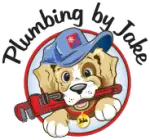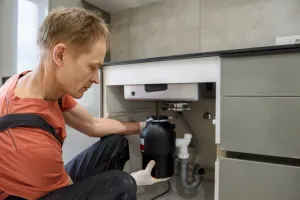When it comes to your home’s garbage disposal, there are dos and don’ts in terms of taking the best care of it. Knowing what not to put down your drain will be an important part of keeping your garbage disposal functioning properly.
Of course, as with any common household issue, there are things you can do to alleviate the damage and tips for cleaning your garbage disposal. Listed below are some things you should refrain from putting down your drain to stop clogs and disposal damage.
The Function of Your Garbage Disposal
For those of you that don’t fully understand how imperative your home’s garbage disposal is, we will explain everything you need to know about them. A home’s garbage disposal is located in the sink and pulverizes food and excess bits that are put down it, making it easy to dispose of waste.
- First, food waste is put down the drain and collected in the upper chamber of the disposal system.
- Here, the food waste is ground up and shredded.
- The waste then falls to the lower unit where a turntable will catch the food.
- This turntable will shred the waste even more and break down any large chunks of food that were missed.
- Next, the bits of waste are cut up even more, allowing them to slip past the motors and shredder rings, sliding down the drainpipe.
- These drainpipes will lead to your home’s sewer system, and the bits of waste can easily carry on down the drains.
It’s important to always run water when you are throwing food waste down the disposal so that they can be easily cut up. When the disposal is working, make sure you allow it to run its course for at least 30 seconds. That way, it can carry out this process fully and ensure all food is ground up effectively.
Things You Shouldn’t Put Down Your Garbage Disposal
Your home’s garbage disposal works hard in order to dispose of food properly and eliminate odors and a mess. Generally, the home’s garbage disposal will work with the flip of a switch. However, garbage disposals can face serious issues.
If your garbage disposal isn’t working properly, there could be major plumbing problems or short-term maintenance that is needed. Luckily, there are things you can do to mitigate any garbage disposal problems in the home.
Some of the items you should refrain from putting down your garbage disposal are:
- Coffee grounds: Even though they are small and filterable, coffee grounds wil pack together and act as a dense solid substance when tossed down the drain. If you throw coffee grounds down the drain, you will find a sticky pile of gunk in the drain.
- Pits or seeds: Generally, if you can’t cut something with a knife, you shouldn’t throw it down the drain. Pits and seeds are two of these things that are best to leave away from the garbage disposal. They are difficult to grind up and can easily cause drain clogs.
- Onion layers: Thinly chopped onions can be thrown down the drain, but it’s the outside skins that can wreak havoc on your home’s garbage disposal. The skin can easily pass by the disposal blades and on some occasions, get trapped and act as a net, making it hard for other items to be broken up.
- Egg shells: This is a common item that many will put down their drain, and it’s also incredibly detrimental to a home’s garbage disposal. An egg shell’s membranes can be easily caught around the blades and create countless problems in your pipes.
- Potato peels: Two things could happen when you throw potato peels down the drain. First, they can catch in the drain, blocking the way for other items, or they can be ground up and create a thick paste that clogs the drain. No matter what happens, your drain will experience issues that could cause long-term and more serious damage.
The Damaging Effects of Hard Water on Your Garbage Disposal
Along with certain foods you shouldn’t put down your drain, your home’s water could have an effect on your disposal as well.
Calcium buildups in the pipes are common in homes that have water that’s considered to be hard, which means waters high in calcium, magnesium, and potassium. Hard water can form white gunk that will clog all drains in your home.
Homes that contain hard water are more susceptible to blockages and clogs in plumbing. If you are unaware if your home has hard water leading to buildup and issues in your garbage disposals, there are a dew things you can look for, including:
- White gunk around the drains
- Damages to appliances that are connected to water pipes
- Skin irritation from showers
- Soap marks or spots on dishes
Trust the Services of Experienced Plumbers
If you are experiencing any pipe blockages or calcium deposits in your home’s plumbing systems, seeking experienced help is crucial. The last thing you want to deal with is a plumbing emergency, so mitigating these issues before they arise is key. That’s where Plumbing by Jake can help.
We are talented technicians that offer around-the-clock repairs and maintenance for any of your plumbing needs. As a comprehensive team of professionals, we offer countless services that your homes can benefit from. Contact us today to schedule an appointment.

